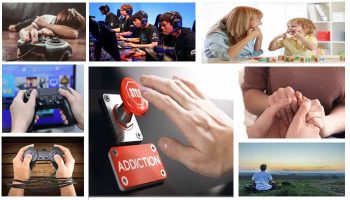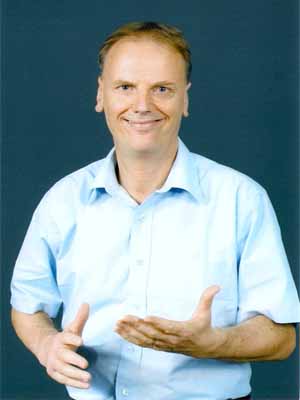Gaming and other addictions: a psychological way out


Nowadays (especially young) people get easily addicted to gaming. With as a result that a new addiction variant has been born: the “gaming disorder”. But not everyone gets addicted to gaming, drinking, porn or develops an eating disorder. There are certain important well-known contributing factors and circumstances but in this article the focus is more on the psychological side.
Addictions are there in many forms, for instance to gambling, chatting, internet games, porn, shopping, work, substances. With addiction to substances there is a physical and a mental component. Physically it means that the human body has been accustomed to this substance and has adapted itself to the use of it. When the administration of that substance stops this causes withdrawal symptoms. Usually there is a built up of tolerance which means that to get the same effect of the addictive substance one has to increase the quantity. Being mentally addicted means that you have the idea that you can’t do anything without using the substance, that you can’t perform without it. A special category is addiction to certain medications like sleeping tablets and anxiety-reducing drugs (the so-called benzodiazepines such as diazepam, oxazepam and alprazolam). Often prescriptions are used for many years to maintain the addiction and it becomes very difficult to stop.
Addictions help us to stop feeling what we would feel without them. By providing ourselves with a ‘shot’ of our favourite addiction we don’t feel the pain of for example emptiness or loneliness. Generally speaking, we don’t feel our unfulfilled needs (from the past), we anaesthetise them. When the endogen opiates (beta-endorphins) can’t help us adequately with dealing with painful emotions we can try exogenous opiates like alcohol, cigarettes, or the high we get from gaming or shopping. The physical addiction is relatively easy to stop, contrarily to the mental addiction because addictions work twofold. They suppress painful emotions and at the same time create the illusion that we can get what we ‘need’. The object of our craving is after all available in the present! It is this illusion that persistently stimulates each addiction. But this ‘high’ is only temporary, the longing for our needs from the past to be fulfilled stays. But no addiction whatsoever can do that. People who are addicted very often have a history of structural abuse (physical, emotional or sexual). As a consequence, an ‘addictive personality’ is formed.
The approach to deal with addictions isn’t an easy one. Willpower won’t work (“what you resist persists”); you can achieve a lot with willpower but your ‘Monster’ (your compulsory side, your addiction) is much stronger than yourself. A punish and reward system doesn’t work well either, neither does “positive thinking” or “affirmations”. What usually does work is to find out what you REALLY crave for or are afraid of. It is crucial to find out how you ‘tick’ and what you want to do with your life. When you are addicted, you usually have lost contact with your body and feelings. You not only have a mind with compulsory thoughts but you have also feelings which can tell you a lot about yourself. You’ll get insight into yourself, in your pros and cons, in your behaviour, in your emotions. Practically it means: stopping with the addiction (if necessary, in phases); each time when the need comes up try to feel this emotion in your body (not your thoughts) and focus on it; and lastly try to accept the pain when you feel that you will never get what you needed in the past. To succeed in all this, you’ll need a dedicated and professional therapist.






